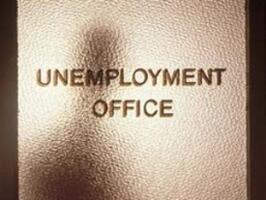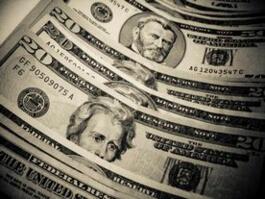Good GOP Flip-Flops By Tony Blankley
William F. Buckley, Jr., founding father of the modern conservative movement, famously asserted his doctrine of voting for the most conservative candidate who is electable.

William F. Buckley, Jr., founding father of the modern conservative movement, famously asserted his doctrine of voting for the most conservative candidate who is electable.

As 2011 rolls along, Americans have become far more pessimistic about the employment outlook.

A generic Republican now holds a six-point advantage over President Obama in a hypothetical 2012 match-up for the week ending Sunday, October 2.

Most voters continue to believe global warming is a serious problem, but they still have mixed views on what the primary cause of climate change is.
The latest Rasmussen Reports national telephone survey finds that 61% of Likely Voters say global warming is at least a somewhat serious problem. Thirty-five percent (35%) don’t believe climate change is a serious problem. Those figures include 28% who say it’s a Very Serious problem and 13% who believe it’s Not At All Serious. (To see survey question wording, click here.)
(Want a free daily e-mail update? If it's in the news, it's in our polls). Rasmussen Reports updates are also available on Twitter or Facebook.
The national survey of 1,000 Likely Voters was conducted on September 28-29, 2011 by Rasmussen Reports. The margin of sampling error is +/- 3 percentage points with a 95% level of confidence. Field work for all Rasmussen Reports surveys is conducted by Pulse Opinion Research, LLC. See methodology.

Voters overwhelmingly reject the idea that opponents of President Obama’s policies are motivated primarily by racism, but there’s a strong difference of opinion between blacks and whites.

In Washington, D.C., conference rooms, the proposed pipeline running from Alberta, Canada, to Texas refineries on the Gulf of Mexico may look rather attractive. The 1,700-mile Keystone XL pipeline would supply the United States with abundant crude from a friendly neighbor. It would create 20,000 jobs, says owner TransCanada. And it would be reasonably safe for the environment, according to a U.S. State Department study.

Perhaps these views are driven in part by the increased skepticism that Americans have about President Obama's economic advisers. Just 31% are at least somewhat confident in those who advise the president on economic policy, with only 14% who are Very Confident. Sixty-three percent (63%) lack confidence in the president’s economic advisers, including 44% who are Not At All Confident in them.
The number of adults confident in Obama’s economic advisers has fallen from 41% in September 2010. Fifty-seven percent (57%) put little or not faith in those advisers at that time.

Republicans have jumped back to a six-point lead over Democrats on the Generic Congressional Ballot for the week ending Sunday, October 2. This is the widest gap between the two parties in a month of weekly tracking.

When tracking President Obama’s job approval on a daily basis, people sometimes get so caught up in the day-to-day fluctuations that they miss the bigger picture. To look at the longer-term trends, Rasmussen Reports compiles the numbers on a full-month basis, and the results can be seen in the graphics below.
In September, the number who Strongly Approved of the president’s job performance was at 21%.

One’s in the race and one’s contemplating a run, but for now Mitt Romney and New Jersey Governor Chris Christie are both essentially even with President Obama in hypothetical Election 2012 matchups.

While Rick Perry continues to take a hammering in the media and from his opponents for the Republican presidential nomination, President Obama’s single-digit lead over the Texas governor remains virtually unchanged over the past month.

The Rasmussen Employment Index, which measures workers’ perceptions of the labor market each month, regained some lost ground in September following August’s 2011 low.
At 73.4, the Employment Index is up four points from August but is still down four points from the beginning of 2011 and down 10 points since last November when hiring expectations peaked. Generally speaking, an increase in the Rasmussen Employment Index suggests the upcoming government reports on job creation will be better than prior months.

Is Herman Cain a serious contender for the Republican presidential nomination? It's a question no one in the pundit world was asking until the past week.
Cain has never held public office. When he ran for the Senate in Georgia in 2004, he lost the primary by a 52 percent to 26 percent margin.

Americans believe more strongly than ever that China is a long-term threat to the United States, and they overwhelmingly feel that threat is economic rather than military.

Most voters still favor repeal of the national health care law, but support for repeal is at its lowest level since May. Most also continue to expect the law to drive up health care costs and the federal deficit.
The latest Rasmussen Reports national telephone survey of Likely U.S. Voters shows that 51% at least somewhat favor repeal of the health care law, including 41% who Strongly Favor it. Thirty-nine percent (39%) at least somewhat oppose repeal, with 28% who are Strongly Opposed. (To see survey question wording.

From their beginning in 2008, the bailouts for Wall Street and the auto industry have been among the most unpopular government actions in recent American history. New polling shows that even after three years, the attitudes haven’t changed all that much.

The number of Republicans and Democrats in the country is just about even. In fact, the gap between the parties is the smallest it has ever been in nearly nine years of monthly tracking.
During the month of September, 33.9% of Americans considered themselves to be Republicans while 33.7% consider themselves Democrats. For both parties, those numbers are up less than a single percentage point from August. As a result, the number of voters not affiliated with either party fell from an all time high of 33.5% in August back to 32.4% in September.

In 2008, Barack Obama became the first Democrat to win Virginia’s Electoral College votes since the Beatles were a brand new act in America in 1964. However, an early look at the 2012 race in the Old Dominion suggests winning twice in a row is not a sure thing for the president.
The first Rasmussen Reports Election 2012 survey in Virginia shows that 46% of the state’s Likely Voters would cast a ballot for former Massachusetts Governor Mitt Romney, while 45% would opt for President Obama. Four percent (4%) prefer some other candidate, while five percent (5%) are undecided.

Announced in September, Rasmussen Reports today launched a new level of subscription service that gives subscribers access to more than 20 articles weekly that are not available to the general public: The Rasmussen Reader.

Despite the media chatter to the contrary, the race for the 2012 Republican presidential nomination has changed little in surveys over the past week, but a wild card may be lurking in New Jersey.
One’s in the race and at week’s end one was reportedly contemplating a run, but for now former Massachusetts Governor Mitt Romney and New Jersey Governor Chris Christie are both essentially even with President Obama in hypothetical Election 2012 matchups.